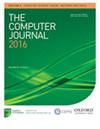边缘计算中分布式深度学习的高效参数服务器配置
IF 1.5
4区 计算机科学
Q4 COMPUTER SCIENCE, HARDWARE & ARCHITECTURE
引用次数: 0
摘要
参数服务器(PS)的位置是分布式深度学习全局模型训练的最重要因素之一。本文提出了一个新的PSs在动态可用存储容量中的放置策略问题,目的是在存储容量和局部PSs数量的约束下最小化分布式深度学习的训练时间。然后,我们为所提出的问题的NP硬度提供了证明。整个训练时期分为两个部分,即第一个时期和其他时期。对于第一个历元,本文提出了一种近似算法和舍入算法来解决所提出的问题。对于其他时期,提出了一种调整算法,通过连续调整PS的放置策略决策来减少全局模型的训练时间。仿真结果表明,在全局模型的训练时间方面,所提出的近似算法和舍入算法在所有情况下都优于现有算法。同时,对于所有情况,所提出的近似算法的全局模型的训练时间都非常接近于暴力方法生成的最优解的训练时间。此外,当训练过程中可用存储容量发生变化时,集成算法的性能优于现有算法。本文章由计算机程序翻译,如有差异,请以英文原文为准。
Efficient Parameter Server Placement for Distributed Deep Learning in Edge Computing
Parameter servers (PSs) placement is one of the most important factors for global model training on distributed deep learning. This paper formulates a novel problem for placement strategy of PSs in the dynamic available storage capacity, with the objective of minimizing the training time of the distributed deep learning under the constraints of storage capacity and the number of local PSs. Then, we provide the proof for the NP-hardness of the proposed problem. The whole training epochs are divided into two parts, i.e. the first epoch and the other epochs. For the first epoch, an approximation algorithm and a rounding algorithm are proposed in this paper, to solve the proposed problem. For the other epochs, an adjustment algorithm is proposed, by continuously adjusting the decisions for placement strategy of PSs to decrease the training time of the global model. Simulation results show that the proposed approximation algorithm and rounding algorithm perform better than existing works for all cases, in terms of the training time of global model. Meanwhile, the training time of global model for the proposed approximation algorithm is very close to that for optimal solution generated by the brute-force approach for all cases. Besides, the integrated algorithm outperforms the existing works when the available storage capacity varies during the training.
求助全文
通过发布文献求助,成功后即可免费获取论文全文。
去求助
来源期刊

Computer Journal
工程技术-计算机:软件工程
CiteScore
3.60
自引率
7.10%
发文量
164
审稿时长
4.8 months
期刊介绍:
The Computer Journal is one of the longest-established journals serving all branches of the academic computer science community. It is currently published in four sections.
 求助内容:
求助内容: 应助结果提醒方式:
应助结果提醒方式:


